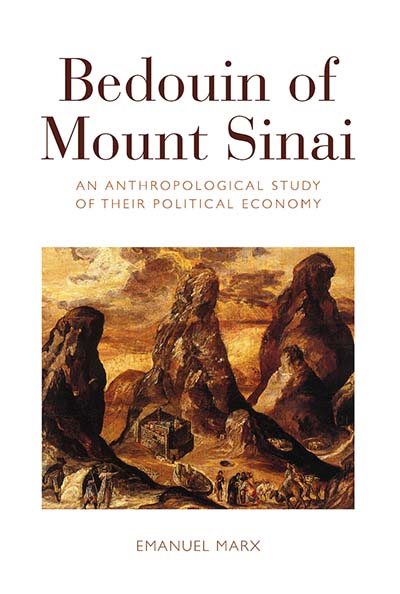
Series
Volume 6
The Human Economy
See Related
Anthropology JournalsEmail Newsletters
Sign up for our email newsletters to get customized updates on new Berghahn publications.
Money at the Margins
Global Perspectives on Technology, Financial Inclusion, and Design
Edited by Bill Maurer, Smoki Musaraj, and Ivan V. Small
334 pages, 22 illus., bibliog., index
ISBN 978-1-78533-653-9 $135.00/£104.00 / Hb / Published (March 2018)
ISBN 978-1-78920-048-5 $29.95/£23.95 / Pb / Published (March 2019)
eISBN 978-1-78533-654-6 eBook
Reviews
“This is an insightful collection that evokes the traditional ethnographic project of studying ‘out of the way’ places…One of the volume’s real strengths is its geographical breadth, in terms both of the cases analysed and of the authors’ background. The studies are drawn from research conducted in twelve different countries on four continents: Africa, Asia, South America, and North America.” • JRAI
“[This volume]… is a welcome addition that describes, often in vibrant detail, how people are already engaging in financial activities and how their acts of saving, loaning, hedging, and investing are intimately linked to performances of personhood, understandings of morality, and even expressions of desire… The collection offers insights for scholars and policy makers alike who are concerned with the consequences and futures of payment systems for the unbanked. The volume will also work in the classroom, as the chapters offer compelling case studies that do justice to the tremendous variation and the social complexity of people’s monetary repertoires and payment systems, underscoring how the margins are not examples of failed development but rather sites that generate insight and innovation.” • Current Anthropology
“Indispensable reading material for scholars as well as industry specialists interested in payment infrastructures and the questions of money and value, this book entails fruitful applications for classroom use. One can hope that this innovative volume will inspire a similarly creative following that continues to combine empirical and industry-based insights with those of anthropological theory, along with an inclusive platform of diverse collaborators.” • American Ethnologist
“This very important collection adds unique ethnographic case studies from a wide variety of geographic contexts to the growing literature on financial inclusion.” • Anke Schwittay, University of Sussex
Description
Mobile money, e-commerce, cash cards, retail credit cards, and more—as new monetary technologies become increasingly available, the global South has cautiously embraced these mediums as a potential solution to the issue of financial inclusion. How, if at all, do new forms of dematerialized money impact people’s everyday financial lives? In what way do technologies interact with financial repertoires and other socio-cultural institutions? How do these technologies of financial inclusion shape the global politics and geographies of difference and inequality? These questions are at the heart of Money at the Margins, a groundbreaking exploration of the uses and socio-cultural impact of new forms of money and financial services.
Bill Maurer is Dean of Social Sciences and Professor of Anthropology and Law, University of California, Irvine. He is the Director of the Institute for Money, Technology and Financial Inclusion (IMTFI), and author of How Would You Like to Pay? How Technology is Changing the Future of Money (2015) among many other publications.
Smoki Musaraj is Assistant Professor of Anthropology and Director of Study of the Anthropology Honors Tutorial Program at Ohio University. She has published in various scholarly journals, including Cultural Anthropology, Ethnologie Française, Përpjekja, Anthropology of East Europe Review, and Current Anthropology.
Ivan V. Small is Associate Professor of Anthropology at the University of Houston. He is author of Currencies of Imagination: Channeling Money and Chasing Mobility in Vietnam (Cornell University Press, 2019). He has consulted for various think tanks, foundations and nonprofit organizations including the Yusof Ishak Institute for Southeast Asian Studies, Smithsonian, India China Institute, Ford Foundation, and World Policy Institute.




